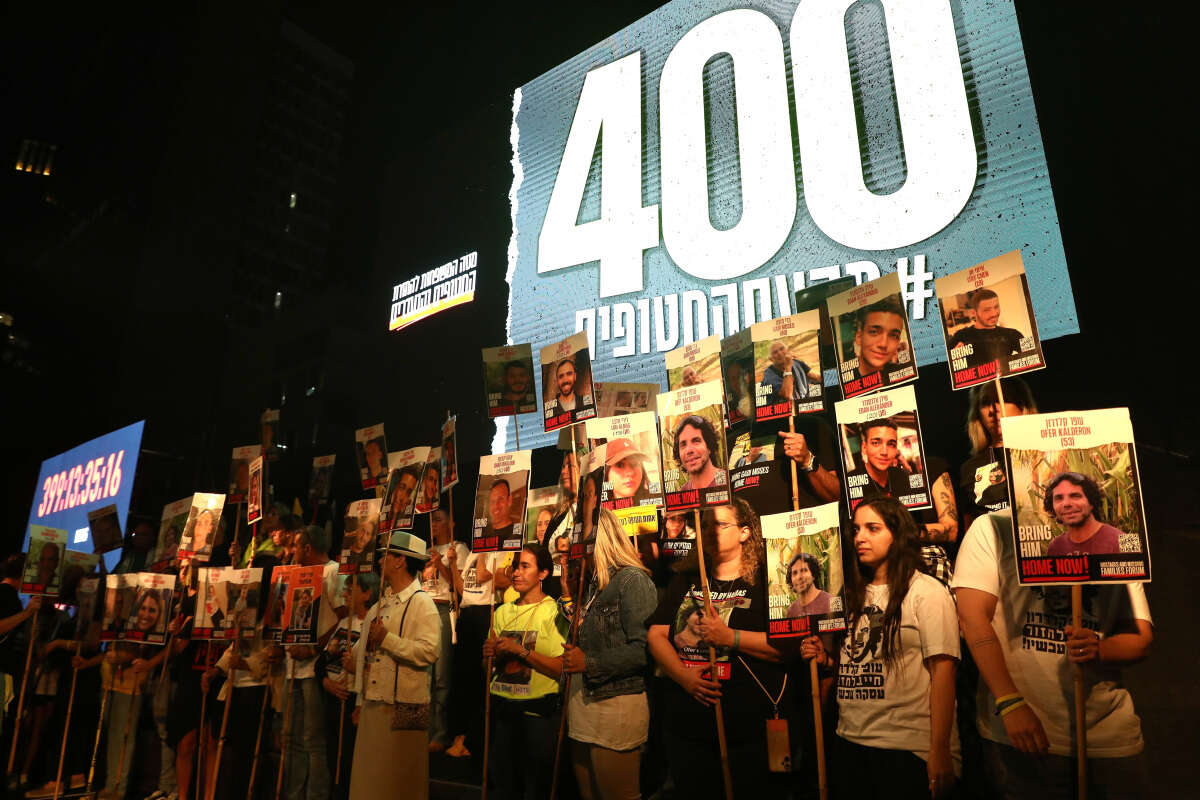Before the identity of the terrorists who carried out Monday’s attack near Kedumim became known, it’s hard to escape the feeling that everything is interconnected: the negotiations for releasing hostages and military operations in Gaza, pressure on Iran, Donald Trump’s entrance to the White House and the future of the Palestinian Authority, as well as internal Israeli issues, primarily the draft exemption law being advanced in the Knesset.
The attack itself appears to have been based on meticulous preparation by the terrorists and familiarity with the terrain. They chose the location in advance, including access routes and escape paths. They also deliberately selected the timing, when morning traffic moves slowly, making it easier to target vehicle passengers. They likely planned to murder a larger number of Israelis and were only stopped thanks to the response of armed civilians who caused them to flee. It seems the only detail they failed to properly assess was the bus’ armoring, which prevented them from massacring its passengers.
While this attack stands out due to its lethal outcome – three murdered and eight wounded – it is not different from other recent attempted attacks. The West Bank is saturated with weapons, and terrorist motivations are sky-high for multiple reasons: pressure from Hamas leadership in Gaza to inflame the territories, parallel pressure from Iran (backed by money), the deepening economic crisis resulting from ongoing closures, and sometimes also pushback against the Palestinian Authority’s increased activity in Jenin in recent weeks.
These reasons aren’t new. Since the war’s start, Hamas has been pressuring West Bank Palestinians to take to the streets, demonstrate and carry out attacks in solidarity with their brothers in Gaza. Despite Hamas’ popularity in the West Bank, resident response has been very low. They have no interest in experiencing what Gaza residents are going through and prefer to keep their heads down until the storm passes. Still, Hamas has many cells in the West Bank, a minority of which manage to act before being thwarted by the Shin Bet and IDF. It’s a constant race where Israel has the upper hand in the vast majority of cases – but there will never be 100% success.

Iran, as mentioned, backs Hamas’ pressure with parallel pressure of its own. In the past year, it has also accelerated the transfer of funds and weapons to terrorists in the West Bank. These are usually local gangs operating in refugee camps, which Iranian Revolutionary Guard Corps members contact through social media. Here too security forces invest great effort in severing this connection, with considerable but not complete success.
Behind the scenes, the main vulnerabilities remain money issues – transferred through various means, mainly money changers – and weapons. The Iranian effort includes smuggling advanced weapons, including sophisticated explosive devices and shoulder-launched missiles. The assessment is that most of these shipments were intercepted in Jordan or at the border, but there is constant concern that some succeeded in reaching territory already saturated with weapons purchased from arms dealers in Israel (mainly from crime families), stolen from IDF bases or manufactured independently in the West Bank.
The Palestinian Authority’s operations in Jenin encounter some of these challenges, with six Palestinian police officers killed so far. Israel welcomes this activity, due to its desire to see more Authority involvement in fighting terrorism, and mainly because any terrorist or explosive device encountered by Palestinian forces doesn’t encounter Israeli forces (or civilians). This Authority activity allegedly began after car thefts in Jenin, but it appears the Palestinians also seek to prove to the Trump administration that they are partners in the region’s fight between good and evil.
Many in Israel believe Trump’s White House entrance in 13 days will give Israel free rein in all arenas, including the West Bank. A tweet posted Monday by Finance Minister Bezalel Smotrich, pledging to work toward dismantling the Authority and canceling the Oslo Accords, exemplifies this, though it’s uncertain the Americans will grant his wish.
During the previous Trump administration, Israel’s intention to annex the West Bank was blocked and later replaced with a regional peace plan that didn’t succeed but remains on the table. Such a plan may also require Israeli concessions in exchange for normalization of relations with Saudi Arabia and additional Arab and Muslim nations.

The recent string of West Bank attacks also requires the security establishment to consider reinforcing forces. At the war’s start, about 30 battalions operated in the area, steadily decreasing to 19 battalions in late 2024. This stems from increased operational needs in other sectors – sometimes Gaza, sometimes Lebanon, sometimes Syria and occasionally all simultaneously – but the bottom line again shows the IDF lacks sufficient forces to fulfill all its missions, certainly when the stated goal is to reduce reserve soldier burden to maximum 70 days annually.
This is yet another wake-up call to the government that additional burden cannot be placed on the reserve army, certainly while simultaneously advancing wholesale ultra-Orthodox draft exemption. Smotrich and his colleagues will again face scrutiny: many of their supporters reside in the West Bank and expect increased security, but they also serve in reserves (and pay their price) and no longer accept the unequal burden.
Prime Minister Benjamin Netanyahu will again have to navigate between political pressures in his government and international pressures, in Biden administration’s final days and on the eve of Trump administration’s entrance, with international criticism of Israel mounting over continued fighting in Gaza.
These coalition pressures are expected to intensify if the hostage deal currently discussed in Qatar advances, though last night it seemed optimistic media reports again got ahead of negotiation room reality. The gaps between sides still appear large and will require concessions and flexibility to reach an agreement returning dozens of hostages, living and dead, home.
